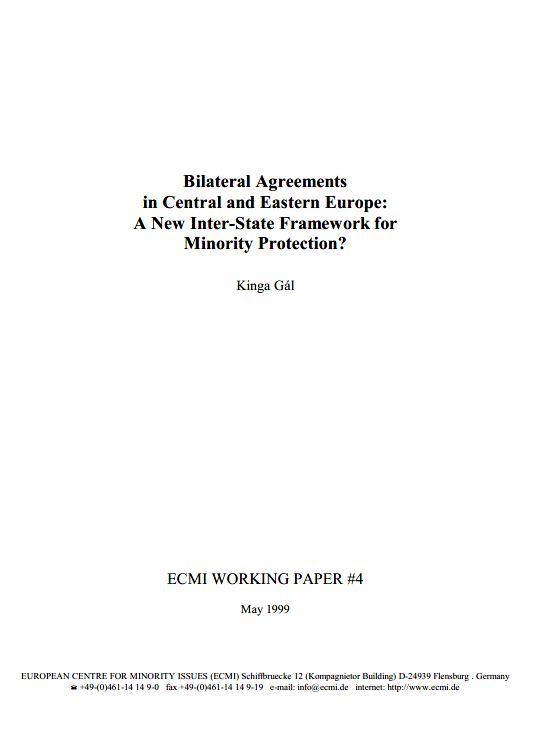Bilateral Agreements in Central and Eastern Europe: A New Inter-State Framework for Minority Protection?
Bilateral Agreements in Central and Eastern Europe: A New Inter-State Framework for Minority Protection?
Author(s): Kinga Gál
Subject(s): International Law, Inter-Ethnic Relations, Ethnic Minorities Studies
Published by: ECMI European Center for Minority Issues
Summary/Abstract: The practice of bilateral agreements on good neighbourly relations was ‘reinvented’ by Germany after 1991 to guarantee the frontiers resulting from World War II and to protect the minorities of German origin in Central and Eastern Europe. A similar policy was pursued by Hungary with five of ist neighbours to deal with the problems of the Hungarian minorities. Parallel to this trend, the European Union has also promoted a policy aimed at guaranteeing stability in Central and Eastern Europe through bilateral agreements on good neighbourliness. The bilateral treaties follow each other in time, structure and content. They incorporate soft law provisions, especially with regard to their minority regulations, reflecting the strong influence of the political factor. They do not mention collective rights and fail to provide the national minorities concerned with any form of self-government. Furthermore, they were often negotiated in the absence of the minority communities they were designed to protect. As these treaties are politically highly motivated, the political aspects of the implementation mechanisms have received primacy over the legal possibilities. The treaties, and hence indirectly the provisions of international documents enshrined in them, have the same status as national legislation and could therefore be claimed before national courts. However, the joint intergovernmental committees monitoring implementation have the potential to become the most effective implementation mechanism. In conclusion, although these treaties have not significantly changed the existing practice of minority protection so far, their importance should not be diminished because they contribute to the construction of a new inter-state framework for minority protection.
Series: ECMI Research Papers
- Page Count: 28
- Publication Year: 1999
- Language: English
- Content File-PDF

